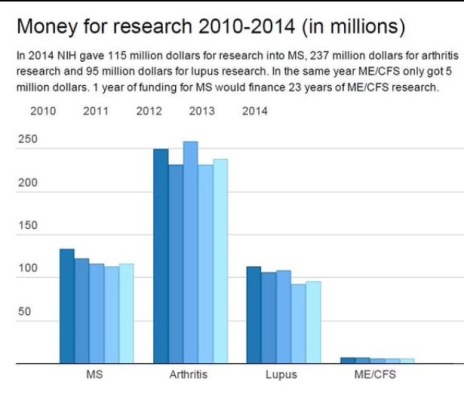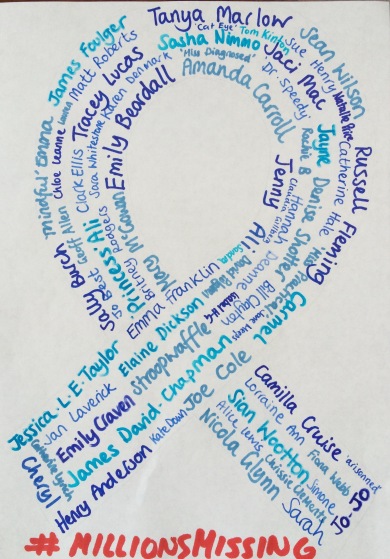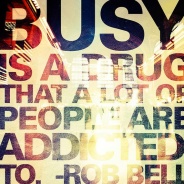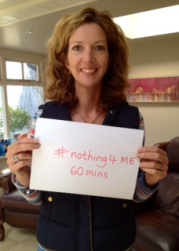I don’t think I’m unusual in wanting to celebrate the good things in life. I don’t think I’m unusual in preferring to showcase the things I can do on social media rather than what I can’t. Tuesday 29th August 2017 was a perfect example. It was our silver wedding anniversary. We celebrated with a second honeymoon earlier in the summer, but we wanted to mark our actual day with the family and doing something significant.
 I guess a bike ride in the Peak District wouldn’t be most people’s way of celebrating 25 years of marriage! However, my husband and I always enjoyed the outdoors, sport and physical exercise. Most of our recreational time together would always involve one of these by choice – until that choice was removed when I was diagnosed with Myalgic Encephalomyelitis (ME). It’s 4 years since I had my full relapse, and by listening carefully to my body, resting (A LOT!) and sticking to a strict diet my health has gradually improved (in an undulating kind of way!). One of the hallmark features of ME is Post Exertional Malaise (PEM) Basically this is a worsening of symptoms following physical or cognitive exertion. The level of exertion is different for everyone. For people with severe ME it could be as little as brushing their teeth, talking on the phone, or reading. Fortunately, my threshold is now much higher, but I’m not immune so I still have to pace all activity carefully.
I guess a bike ride in the Peak District wouldn’t be most people’s way of celebrating 25 years of marriage! However, my husband and I always enjoyed the outdoors, sport and physical exercise. Most of our recreational time together would always involve one of these by choice – until that choice was removed when I was diagnosed with Myalgic Encephalomyelitis (ME). It’s 4 years since I had my full relapse, and by listening carefully to my body, resting (A LOT!) and sticking to a strict diet my health has gradually improved (in an undulating kind of way!). One of the hallmark features of ME is Post Exertional Malaise (PEM) Basically this is a worsening of symptoms following physical or cognitive exertion. The level of exertion is different for everyone. For people with severe ME it could be as little as brushing their teeth, talking on the phone, or reading. Fortunately, my threshold is now much higher, but I’m not immune so I still have to pace all activity carefully.
It wasn’t an easy decision, therefore, to go for a bike ride. I certainly wouldn’t have attempted it if I didn’t feel my health was stable enough. Then came the discovery of electric bikes! One rotation on the pedals and the bike was away! I had to give it a go!
It was fantastic! I loved the ease of it, the speed of it and seeing the rest of the family trying to keep up with me! I could also pedal with an electric boost which meant I only needed to give 50% effort (how I could do with that around the house!) I even managed to turn the electric off on a few short, flat stretches. The kids loved having a go on the bike too and all in all it was a perfect way to spend our anniversary.
The next morning I woke up feeling fab. I had that nice feeling of legs that ached slightly from exercise and an inner glow of a great family day out (and felt just a little smug in thinking I had found a way to enjoy outdoor activity and beat PEM!)
I shared my exciting cycling news with a neighbour only to get a less than impressed reply. It wasn’t easy to hear my big moment wiped out as “cheating”.
I’m also aware that a photo without the full story can lead many to think that there is nothing wrong with me. If I’m honest, part of me likes it this way. But when people don’t understand the consequences and the unseen parts of the photo, there is a problem. We can be seen as frauds who over exaggerate our condition, and that we just need to try and do more and not think about how we feel.*
So, how did I feel?
I had about 24 hours of feeling on cloud nine and then I suddenly hit my all too familiar wall. My legs felt like cast iron saucepans with popcorn going off in them – nothing like the nice aches of earlier in the day. The fog had rolled in on my brain and I could no longer concentrate or think clearly, I felt dizzy and disorientated and oversensitive to noises, my heart was working harder and faster, and my lymph nodes became tender and swollen. People with ME learn the hard way, that braving it through these episodes only makes it worse. It was time to put all plans for the day to bed and rest it out.
My body is so much stronger than it was 4 years ago and my PEM is less severe. These days, even with PEM, I can slowly lug my heavy body around the house and I write this post! The likely hood is that with rest, it will pass within a day or so. There was a time when far less exertion could have put me out of action for weeks, so I’m both grateful for the progress I’ve made as well as frustrated for not being able to be totally free from the clutches of ME.
It’s also hard to carry the blame of my illness. People who understand my ME often ask if I’ve been doing too much after a blip. Sometimes I have, sometimes I’ve not, but I only know that with hindsight! Occasionally I take a gamble, but usually I’m considered and responsible about what I take on and do. So, I’m not a cheat, a fraud or reckless! The fact is my body still has a glitch. It’s not easy sharing that publicly, but if it helps people understand what ME is (and isn’t) then it will give all people with ME an easier time in dealing with their illness.
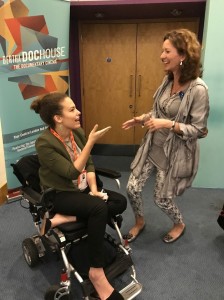
This Autumn I will be working alongside others to try and get ME better understood by parliamentarians. This includes an opportunity to get the award winning film, Unrest shown in parliament. The incredible Jen Brea both stars and directed the film which tracts her life with ME. I was fortunate enough to see the UK premier last June and met Jen. It bravely demonstrates the many hidden and misunderstood aspects of the illness and is a great resource to educate a wider audience to the personal, social and political problems that people with ME have to face. I highly recommend it- and recommend you recommend it to others! (If you don’t blink at the wrong time you might even see me as you’ve never seen me before…!) It comes to the UK in October. (watch trailer) To find out where you can see or host Unrest click here
I have a feeling this Autumn will be a busy period for people with ME. So I’m pacing myself ready for the new opportunities! Keep your eyes peeled for Unrest and join the conversation at #timeforunrest
*(Much of current NHS guidelines are based on this line of false illness belief and proport Cognitive Behavioural Therapy (CBT) and Graded Exercise Therapy (GET). NICE are currently reviewing it’s guideline for ME with an decision expected in October. I sincerely hope they update it to recognise PEM, and take on board the biomedical advances that demonstrate why CBT/GET can be harmful treatments for people with ME and remove them with immediate effect)


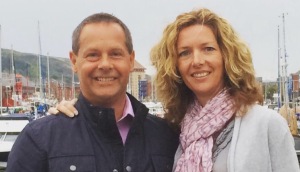











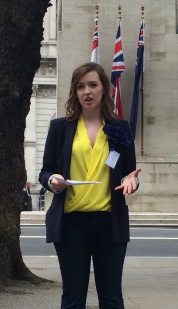

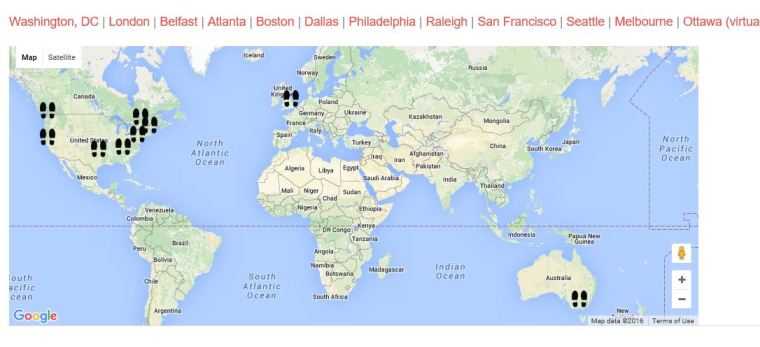 For many people with ME, this is far too big an ask. Many have been housebound for years, even decades, so there will also be a worldwide
For many people with ME, this is far too big an ask. Many have been housebound for years, even decades, so there will also be a worldwide 